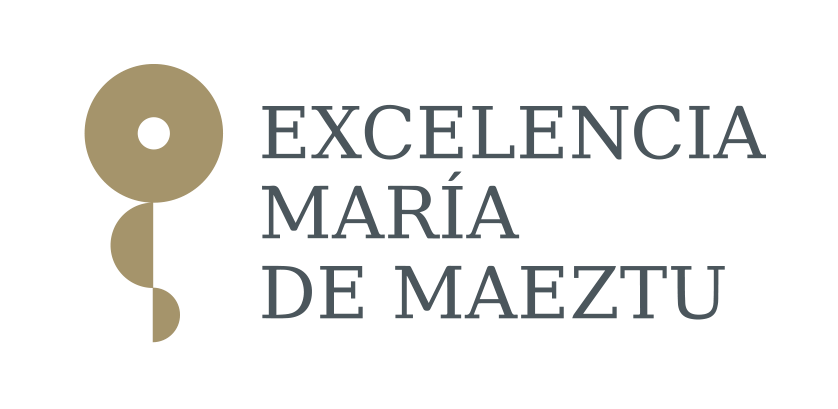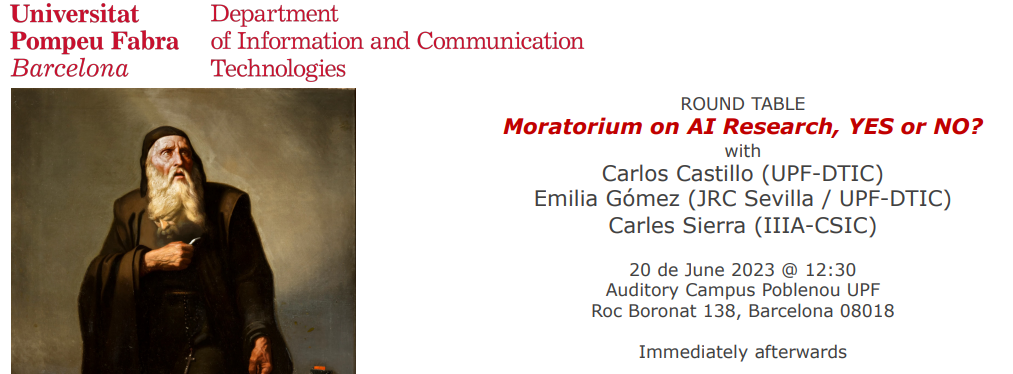The second Maria de Maeztu Strategic Research Program (CEX2021-001195-M) of the Department of Information and Communication Technologies (DTIC) takes place between 2023 and 2026. The website for this program is under construction. You can find some details in this news.
The first María de Maeztu Strategic Research Program (MDM-2015-0502) took place between January 2016 and June 2020. It was focused on data-driven knowledge extraction, boosting synergistic research initiatives across our different research areas.
“Science is what moves modern humanity”
Within the framework of activities for the celebration of its 25th anniversary, on 1 April Pompeu Fabra University invited the researcher Aaron Ciechanover to deliver a lecture on protein degradation. Ciechanover, PhD in medicine and biology by the Hadassah Medical School of the Hebrew University of Jerusalem, won the 2004 Nobel Prize for Chemistry for the discovery of the ubiquitin system in the degradation of cellular proteins.
You are a doctor in medicine and biology, is that right?
Yes. I always wanted to be a physiologist, and in fact that’s what I am. I studied medicine for a time, but then I realized that I wanted to understand better the mechanisms of diseases: not just treat them, but understand why they appear. At that time I was an apprentice, I don’t think I would have taken that decision today.
Why not?
Because I didn’t know so much about diseases and how complex they are! Today I would never dare to say that I would like to solve the mysteries of cancer, but at that time I thought I could. So I decided to give science a go. I took a year out of my medicine studies and I invested it in a biochemistry project, and I fell in love with research. My studies have zig-zagged: medicine, science, medicine and finally I stuck with science.
What drove you to study protein degradation?
It was not my idea, but Avram Hershko’s, my mentor and with whom I share the Nobel Prize. He thought that protein degradation was an unexplored area. Biologists then were interested in protein genetics and synthesis, but deterioration had hardly been investigated. There were studies of lysosomes, but Hershko realized that lysosomes do not solve certain questions about the specificity of protein degradation.
How did you meet Avram Hershko?
When I decided to devote myself to science, I had several interviews with potential mentors. He told me that there was something pending in degradation, but didn’t know what or how. He didn’t know what would be the plan to investigate it, but he had a hunch. It was an adventure! Normally, researchers tell you what your role will be in their research and how you will proceed with this research. He was the only one that proposed I should explore the unknown and I liked it.
Is that what you most like about science?
Yes, science is a great adventure, even today. But it’s not easy, you have to ask yourself the right questions, which must always be important questions. You have to be quite adventurous, you have to be willing to take risks.
What questions are you trying to answer today through your research?
We are still studying the ubiquitin system but now we are asking ourselves more concrete, more detailed questions. Most are to do with the role of ubiquitin in cancer.
What applications has knowing about the ubiquitin system enabled?
Several drugs already exist on the market that are very effective in treating cancer and that act on the ubiquitin system. The activity of these drugs follows different principles from chemotherapy, so they do not have the side effects chemo does. We have for example Velcade, which acts by inhibiting the proteasome, thalidomide, which acts by activating it... and there will be more.
What is the role of science in society?
Science is what moves modern humanity. Think about communications, transport, energy, etc. Think of any invention. It’s science. In my opinion, science is the basic tool to improve people’s lives in all areas. Unfortunately, however, science has two sides: you can develop weapons of mass destruction and cause harm to many people, or it can be used to improve human life and help us to make progress.
And does the general society have a place in science?
The role of society is to control science. In many ways, but especially morally. Science is moving very quickly and we need to maintain morality. If a country could develop a virus capable of killing all of humanity, society must stop it. And it is not just a question of weapons, we find ethical dilemmas in all branches. Today, for example, there is a big open debate about genetic manipulation. Should we use it on humans? If so, in what cases is it justified? There should be a constant dialogue between scientists and society. We live in a context, surrounded by a culture and a history, that must be taken into account. Scientists are human beings, with all that that entails, and they are not different from other people. Perhaps they know better than anyone what they’re doing, they don’t necessarily know the consequences that their results may involve.
What did winning the Nobel Prize for Chemistry in 2004 mean to you?
I am also a person and obviously I like social recognition. But I never imagined or planned to win a Nobel. You cannot live your life thinking about an award, we would be mad to do so! I live my life to be happy together with my family. And if a prize comes along, then all well and good. it entails many positive things such as recognition, travel, invitations, etc. But also some negative ones: you are no longer so free. Your life changes a bit, it’s the price to pay. But it’s nice. I also believe that with the prizes in general, not just the Nobel, you give recognition that encourages young people to dedicate themselves to science because they see that these achievements stand out in society. Some children, not all, think “why can’t I be a part of this competition?” It’s not about the money they give you or the prizes... It’s about participating in human knowledge.
Related Assets
Department of Information and Communication Technologies, UPF
Grant CEX2021-001195-M funded by MCIN/AEI /10.13039/501100011033


Department of Information and Communication Technologies, UPF
- Àngel Lozano - Scientific director
- Aurelio Ruiz - Program management




